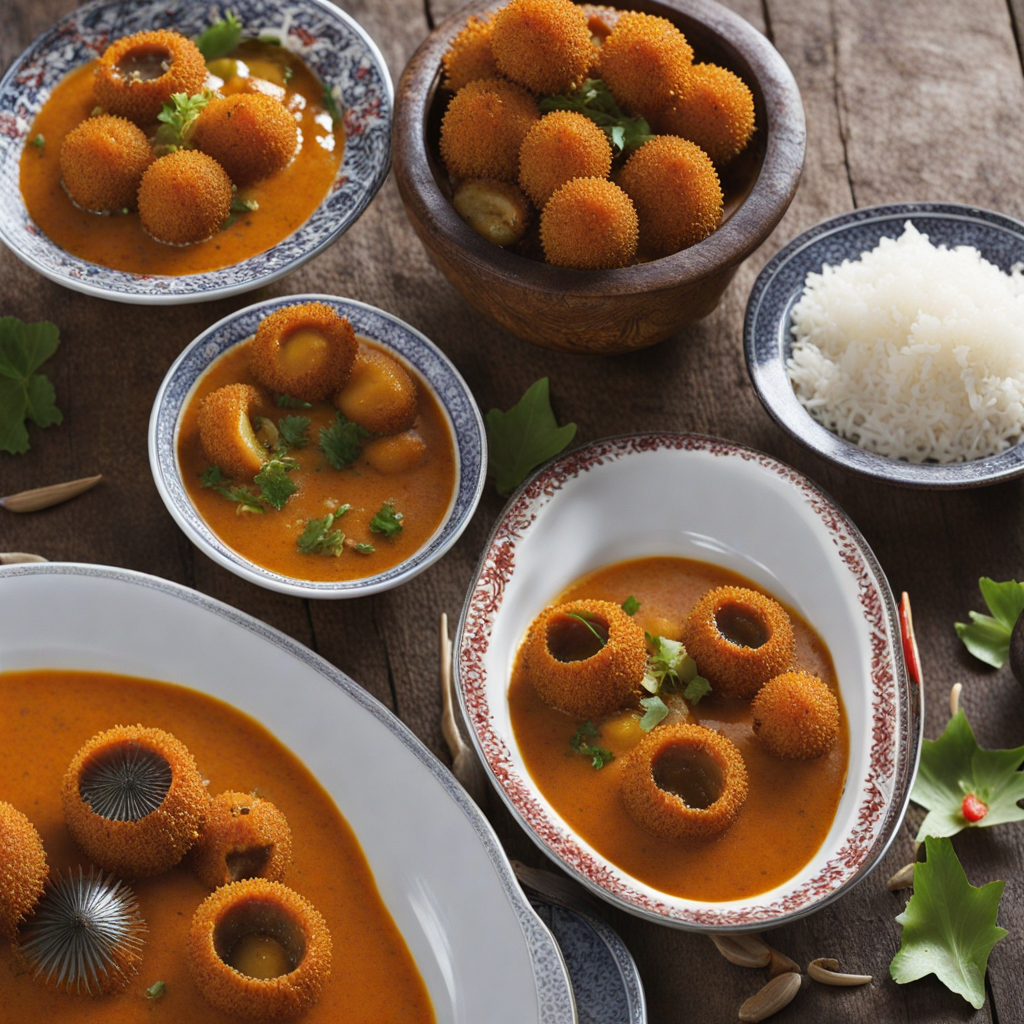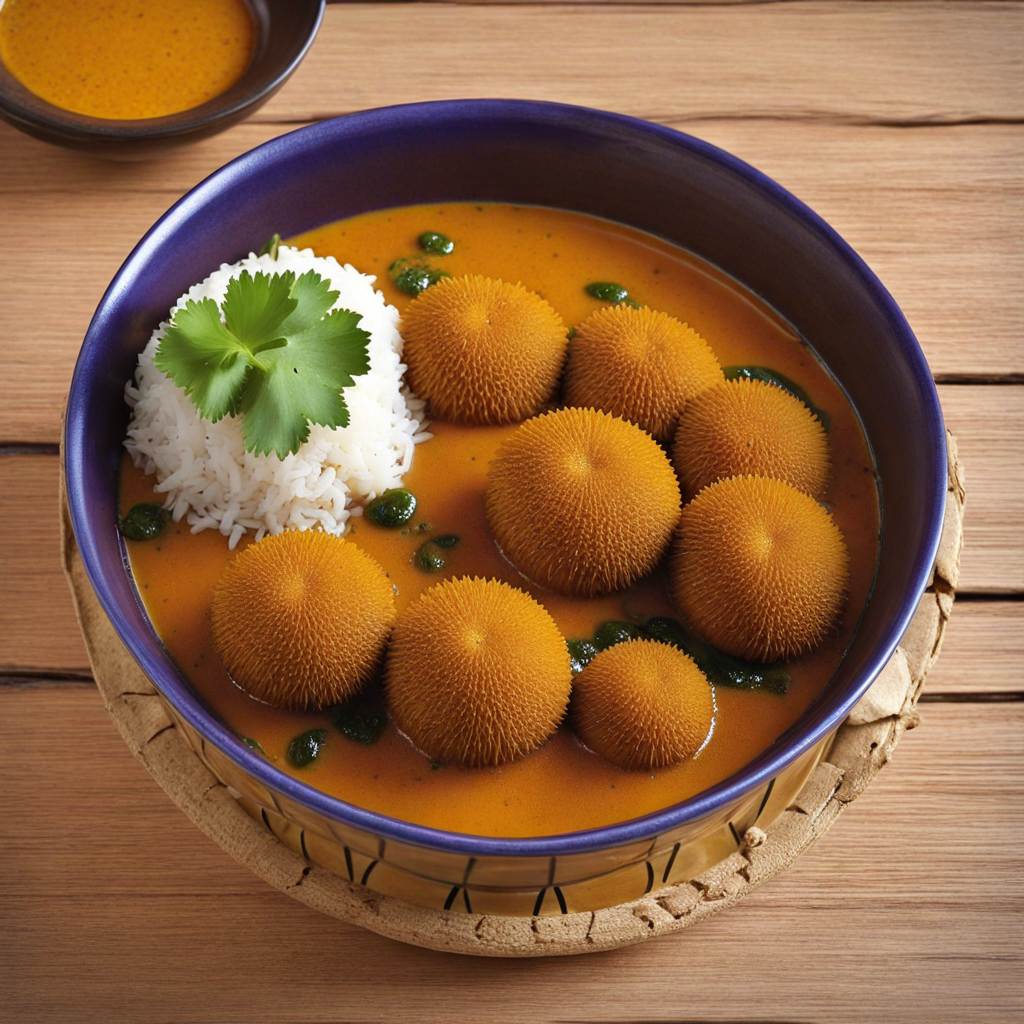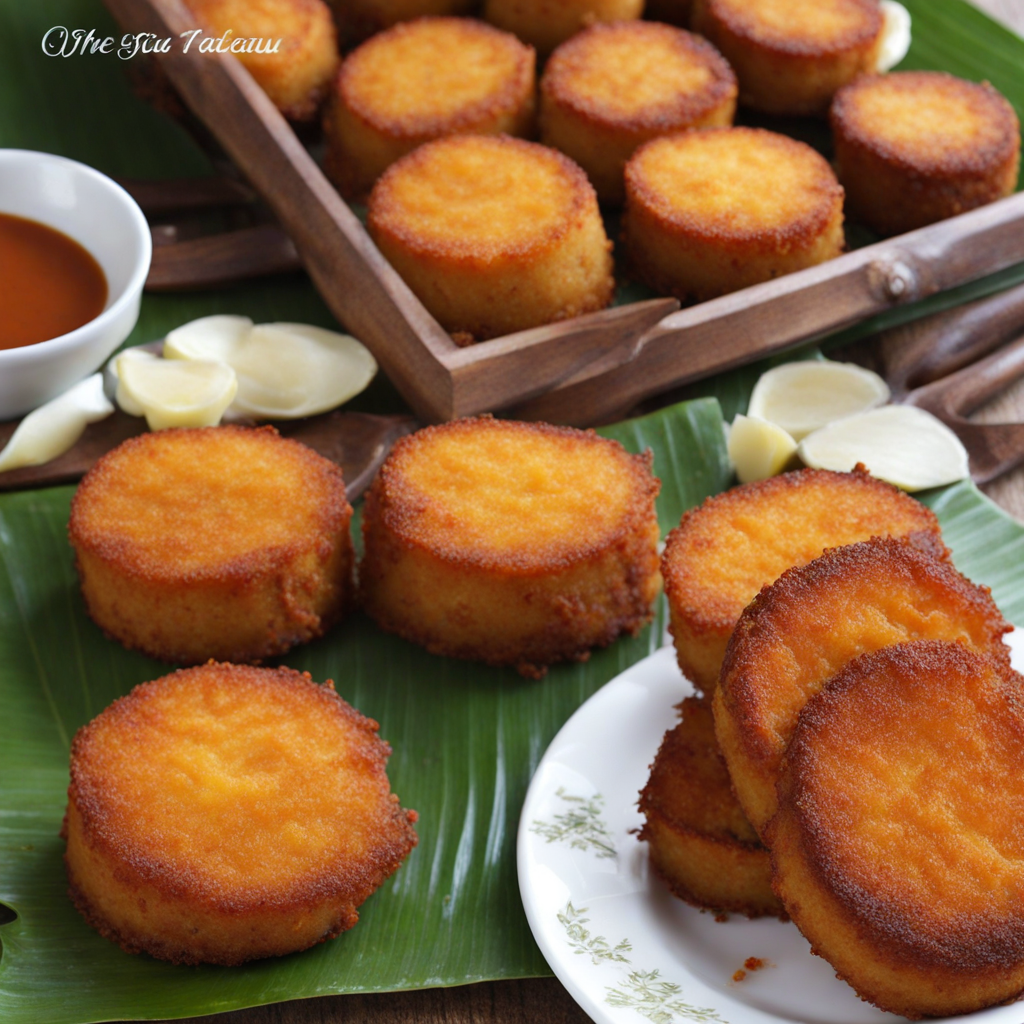Sea Urchin Curry
Sea Urchin Curry is a vibrant dish that showcases the unique flavors of the ocean, drawing inspiration from Mauritius' rich culinary heritage. The dish features fresh sea urchin, known for its creamy texture and briny taste, which is delicately combined with a blend of aromatic spices. The curry base is often crafted from a medley of onions, garlic, ginger, and tomatoes, simmered together to create a rich and flavorful sauce that enhances the natural sweetness of the sea urchin. The addition of coconut milk provides a luscious creaminess, balancing the bold spices and delivering a comforting, indulgent experience. The spices used in Sea Urchin Curry are typically a harmonious mix of traditional Mauritian flavors, including turmeric, cumin, and coriander, which lend warmth and depth to the dish. A hint of chili may be added for a gentle kick, while fresh herbs like cilantro or curry leaves can be sprinkled on top for an aromatic finish. The dish is often served with steamed rice or bread, allowing diners to soak up the flavorful sauce and enjoy the sumptuous pairing of textures and tastes. Not only is Sea Urchin Curry a feast for the palate, but it also reflects the coastal lifestyle and culinary traditions of Mauritius. This dish is a celebration of local ingredients, highlighting the bounty of the sea while embracing the island's multicultural influences. Each bite offers a taste of the ocean, surrounded by a tapestry of spices that transport you to the vibrant markets and kitchens of Mauritius, making it a must-try for adventurous food lovers seeking to expand their culinary horizons.
How It Became This Dish
The Culinary Journey of Ourite Kari: A Mauritian Delicacy #### Origins: The Birth of a Dish Ourite Kari, or octopus curry, is a beloved dish that embodies the rich tapestry of Mauritian culture and its historical influences. Mauritius, an island nation in the Indian Ocean, is renowned for its melting pot of cultures, including Creole, Indian, Chinese, and French influences. The island's culinary landscape reflects this diversity, with Ourite Kari standing out as a quintessential Mauritian dish. The origins of Ourite Kari can be traced back to the early settlers and traders who arrived on the island. The Portuguese were among the first Europeans to reach Mauritius in the 16th century, but it was the French who established the first permanent settlements in the 18th century. During this time, they brought with them a variety of culinary techniques and ingredients, including spices that would later define Mauritian cuisine. The island's abundant marine life has long been a source of sustenance for its inhabitants. The use of octopus in cooking is a practice that predates European colonization, as indigenous communities and early settlers relied on the rich bounty of the surrounding waters. The method of cooking octopus in a curry sauce was likely adapted from Indian and Creole influences, merging local ingredients with spices and techniques brought by immigrants. #### Cultural Significance: A Symbol of Unity and Heritage Ourite Kari is more than just a dish; it is a symbol of Mauritian identity and unity. The preparation and consumption of this delicacy often bring families and communities together, reflecting the island's ethos of harmony among diverse cultures. The dish is typically served at festive occasions, such as weddings, family gatherings, and national celebrations, highlighting its role in communal bonding. In Mauritian culture, food is an integral part of social interactions. Sharing a meal represents hospitality and a sense of belonging. Ourite Kari, with its vibrant flavors and aromatic spices, has become a staple at communal feasts. The dish not only nourishes the body but also fosters connections between generations, as recipes are passed down from elders to the younger members of the family. Moreover, the dish is a representation of the island’s historical journey. It encapsulates the blending of various culinary traditions, illustrating how Mauritius has embraced diversity while forging a distinct identity. The use of octopus, a seafood that is both locally abundant and culturally significant, further emphasizes the connection to the island's maritime heritage. #### Development Over Time: From Simple Ingredients to Culinary Masterpiece The evolution of Ourite Kari reflects the broader changes in Mauritian society and its culinary practices. Originally, the dish was likely a simple preparation of octopus cooked with local spices and herbs. As the island became a hub of trade and migration, the recipe began to evolve, incorporating new ingredients and cooking methods. One of the key components of Ourite Kari is the use of spices, which are essential in creating the dish's signature flavor. The introduction of spices from Indian cuisine, such as turmeric, cumin, and coriander, transformed the dish into a complex and aromatic curry. These spices not only add depth to the flavor but also highlight the historical connections between Mauritius and India, which has had a significant influence on the island's culinary landscape since the arrival of Indian laborers in the 19th century. In addition to spices, the dish often features ingredients like tomatoes, onions, garlic, and ginger, which contribute to its robust flavor profile. These ingredients, readily available on the island, reflect the local agricultural practices and the adaptation of global culinary techniques to suit Mauritian tastes. Over the years, Ourite Kari has also seen variations in preparation styles, depending on personal and regional preferences. Some households may prepare it with coconut milk for a creamier texture, while others might opt for a spicier version by incorporating chili peppers. This flexibility not only adds to the dish's appeal but also showcases the creativity of Mauritian home cooks. Today, Ourite Kari can be found in both humble street food stalls and upscale restaurants, illustrating its versatility and widespread popularity. It has transcended its humble beginnings to become a culinary emblem of Mauritius, attracting both locals and tourists alike. #### Global Influence and Modern Adaptations In recent years, the global interest in Mauritian cuisine has grown, with chefs and food enthusiasts showcasing the island's culinary heritage on international platforms. Ourite Kari has gained recognition as a must-try dish for anyone visiting Mauritius, often featured in food festivals and culinary tours. Its unique flavors and cultural significance have sparked curiosity among food lovers around the world, leading to its inclusion in global food discourse. Modern adaptations of Ourite Kari have emerged, reflecting contemporary dining trends and the influence of global cuisine. Chefs are experimenting with fusion elements, incorporating international ingredients while staying true to the essence of the dish. This evolution has not only kept the tradition alive but has also expanded its reach, allowing a new generation to appreciate the flavors of Mauritius. Furthermore, the rise of sustainable seafood practices has prompted a renewed focus on sourcing octopus responsibly. Chefs and home cooks alike are becoming more conscious of the environmental impact of their food choices, leading to discussions about sustainability in Mauritian fisheries. This shift is vital for preserving the integrity of local marine ecosystems while ensuring that future generations can enjoy dishes like Ourite Kari. #### Conclusion: A Culinary Legacy Ourite Kari is more than just a dish; it is a reflection of Mauritius's rich cultural heritage and its journey through history. From its humble origins to its status as a culinary icon, the dish encapsulates the island's spirit of unity and diversity. As Mauritius continues to evolve, so too will Ourite Kari, adapting to new influences while remaining a cherished symbol of the island's identity. For those fortunate enough to experience it, Ourite Kari offers a taste of history, culture, and community, reminding us of the power of food to bring people together and celebrate shared traditions. Whether enjoyed at a family gathering or a bustling restaurant, this octopus curry remains a testament to the enduring legacy of Mauritian cuisine.
You may like
Discover local flavors from Mauritius







